[2007] 1 SLR(R) 629 - Singapore Law
[2007] 1 SLR(R) 629 - Singapore Law
[2007] 1 SLR(R) 629 - Singapore Law
Create successful ePaper yourself
Turn your PDF publications into a flip-book with our unique Google optimized e-Paper software.
660 SINGAPORE LAW REPORTS (REISSUE) [<strong>2007</strong>] 1 <strong>SLR</strong>(R)<br />
Ordinance of 1909 (SS Ord No VIII of 1909), and as s 4(8) of the Civil <strong>Law</strong><br />
Ordinance of 1926 (SS Ord No 111, vol 3, 1926 Ed). It then read:<br />
A mandamus or an injunction may be granted or a receiver appointed<br />
by an interlocutory order of the Court, either unconditionally or upon<br />
such terms and conditions as the Court thinks just, in all cases in which<br />
it appears to the Court to be just or convenient that such order should<br />
be made.<br />
This section remained unchanged until 2005 when the expression<br />
“mandamus” was replaced by the expression “mandatory order”, and the<br />
section renumbered as s 4(10). This provision gives power to the court to<br />
grant only interlocutory injunctions. The power to grant final injunctions is<br />
found in para 14 of the First Schedule to the SCJA.<br />
65 There were no legal developments affecting the court’s power under<br />
s 4(10) until the early 1980s when, in line with the decisions of English<br />
courts under the equivalent English provision, our courts invoked s 4(10) as<br />
the statutory source of power to grant Mareva injunctions in court<br />
proceedings: see Art Trend Ltd v Blue Dolphin (Pte) Ltd ([29] supra) at [27],<br />
where Lai Kew Chai J said:<br />
Mareva injunctions have been issued by the High Court in <strong>Singapore</strong><br />
for some years now. They have been issued under s 4(8) of the Civil<br />
<strong>Law</strong> Act (Cap 30). The subsection in terms are equivalent to the former<br />
s 45 of the English Supreme Court of Judicature (Consolidation) Act<br />
1925, since replaced and expanded. The latter provision was the basis<br />
on which an injunction, later known by the sobriquet Mareva<br />
injunction, was for the first time granted in England in May 1975: see<br />
Colin Ying, “The Mareva Injunction and Pre-trial Attachment” [1981]<br />
2 MLJ cvii.<br />
In that passage, Lai J noted the correspondence between the <strong>Singapore</strong> and<br />
the English provisions (the latter having been authoritatively interpreted in<br />
The Siskina ([4] supra)). In his article referred to in the quotation above,<br />
Colin Ying has argued that s 4(10) allowed a <strong>Singapore</strong> court to grant<br />
Mareva injunctions but subject to the prerequisites laid down by<br />
Lord Diplock in The Siskina. One such requisite is that the court must have<br />
jurisdiction over the substantive claim.<br />
Karaha Bodas Co LLC v Pertamina Energy Trading Ltd<br />
66 In Karaha Bodas ([4] supra), this court applied the principle in The<br />
Siskina that a court had no power to grant Mareva interlocutory relief<br />
unless the defendant was “amenable to the jurisdiction of the court” in<br />
respect of a substantive cause of action. In that case, the appellants had<br />
obtained an arbitral award in Hong Kong against the respondents’ holding<br />
company (“Pertamina”), an Indonesian company. The appellants obtained<br />
a garnishee order against the respondents (“Petral”), a Hong Kong<br />
company, attaching the debts owing by Petral to Pertamina. The appellants


![[2007] 1 SLR(R) 629 - Singapore Law](https://img.yumpu.com/7082457/32/500x640/2007-1-slrr-629-singapore-law.jpg)
![[2011] 1 SLR 727 - Singapore Law](https://img.yumpu.com/51140774/1/166x260/2011-1-slr-727-singapore-law.jpg?quality=85)
![[1983-1984] SLR(R) 447 - Artic Builders & Co - Singapore Law](https://img.yumpu.com/50909204/1/164x260/1983-1984-slrr-447-artic-builders-co-singapore-law.jpg?quality=85)
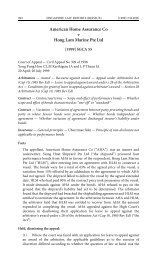
![[1996] 2 SLR(R) 292 - Lim Eng Hock Peter v ... - Singapore Law](https://img.yumpu.com/47482222/1/164x260/1996-2-slrr-292-lim-eng-hock-peter-v-singapore-law.jpg?quality=85)
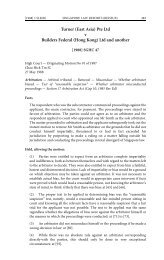
![[2006] 1 SLR(R) 197 - PT Asuransi Jasa Indonesia - Singapore Law](https://img.yumpu.com/46425352/1/164x260/2006-1-slrr-197-pt-asuransi-jasa-indonesia-singapore-law.jpg?quality=85)
![[1985-1986] SLR(R) 503 - Woh Hup (Pte) - Singapore Law](https://img.yumpu.com/45676364/1/164x260/1985-1986-slrr-503-woh-hup-pte-singapore-law.jpg?quality=85)
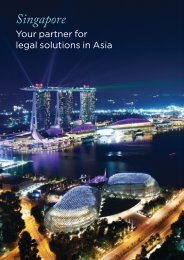
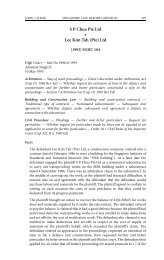
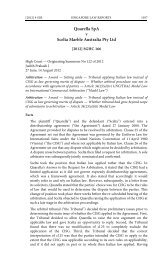
![[2010] 2 SLR 821 - Singapore Law](https://img.yumpu.com/43145563/1/166x260/2010-2-slr-821-singapore-law.jpg?quality=85)
![[2007] 1 SLR(R) 597 - PT Asuransi Jasa Indonesia - Singapore Law](https://img.yumpu.com/42983489/1/164x260/2007-1-slrr-597-pt-asuransi-jasa-indonesia-singapore-law.jpg?quality=85)
![[1989] 1 SLR(R) 433 - Singapore Law](https://img.yumpu.com/42649524/1/164x260/1989-1-slrr-433-singapore-law.jpg?quality=85)
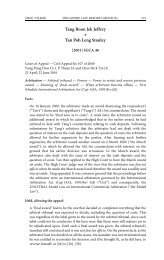
![[1997] 3 SLR(R) 360 - Singapore Law](https://img.yumpu.com/42287507/1/164x260/1997-3-slrr-360-singapore-law.jpg?quality=85)